


Evils of Religion













 PARSHA FUNDAMENTALS
RABBI
PARSHA FUNDAMENTALS
RABBI
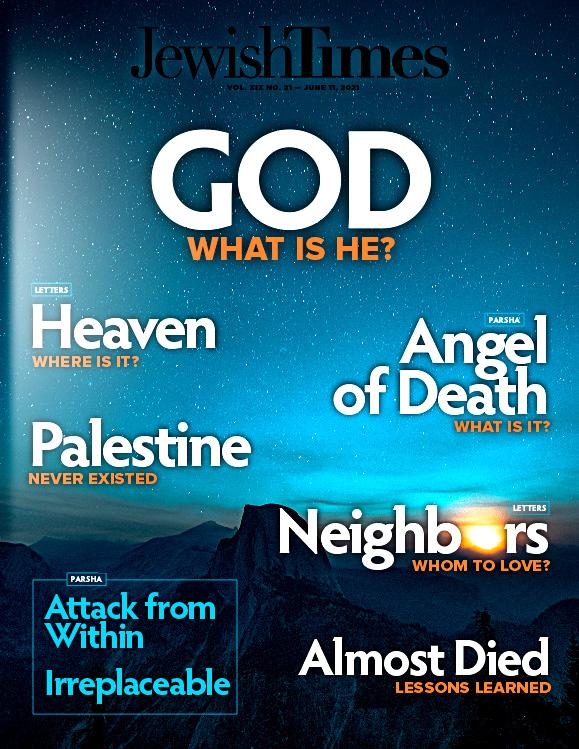






| Please send letters and questions to: Comment@Mesora.org |
STUDENTS
The di erence between Joseph’s 2 dreams
LETTERS
Catastrophe, sickness and misfortune prod this reader’s question. Torah responds.
RABBI REUVEN MANN
The significant lesson of sacrifice
RABBI MOSHE BEN-CHAIM
The rabbis’ allegories contain riddles and great insights
RABBI MOSHE BEN-CHAIM

Ibn Ezra said, that Saadia Gaon said, “ e word ‘said’ is missing from this verse.” Meaning, “ e sun said Torah is perfect.”
His intent is that the previously-discussed sun, in all its greatness imparting God’s wisdom, admits that Torah is the be er teacher of God’s wisdom. at is, science (sun/nature) is limited by human deduction, induction and reasoning; the wisdom we derive originates in faulty human language. Whereas Torah is God’s perfect formulations of ideas.

STUDENT: Now Israel loved Joseph best of all his sons—he was his “child of old age”; and he had made him an ornamented tunic. And when his brothers saw that their father loved him more than any of his brothers, they hated him so that they could not speak a friendly word to him.
Once Joseph had a dream which he told to his brothers; and they hated him even more. He said to them, “Hear this dream which I have dreamed: There we were binding sheaves in the field,
when suddenly my sheaf stood up and remained upright; then your sheaves gathered around and bowed low to my sheaf.” His brothers answered, “Do you mean to reign over us? Do you mean to rule over us?” And they hated him even more for his talk and for his dreams. He dreamed another dream and told it to his brothers, saying, “Look, I have had another dream, behold the sun, the moon, and eleven stars were bowing down to me.” (Gen. 37:3-9)


My question is, why in the first dream the brothers’ sheaves bowed to Joseph’s sheaf, but in the second dream, the 11 stars are not bowing to Joseph’s star, but bowed directly to Joseph himself?
–Ahron F.RABBI: Rabbi Chait explained the reason behind these two dreams; they were forecasts. The brothers would be subservient to Joseph in terms of grain during the famine: they would descend to Egypt and purchase wheat, which Joseph controls. This is subservience in terms of the physical, the first dream of the brothers’ sheaves bowing to Joseph’s sheaf. But Joseph would also rule or direct the brothers in their perfection, represented by the stars the sun and the moon bowing to Joseph. But there was a relationship: when the brothers were physically subservient to Joseph regarding the grain, this was divine license for Joseph to dominate the brothers in terms of their metaphysics, the stars. Meaning, the two dreams together formed a divine permission for Joseph to force the brothers into perfecting themselves, something a person ordinarily has no right to do: we can only work on our own perfection and cannot force others, unless God licenses

us, which He did with these two dreams.
When the brothers unknowingly approached Joseph to buy grain, Torah teaches, “Joseph remembered his dreams” (Gen. 42:9). This was not an arrogant statement, as if Joseph was priding himself saying, “Aha, my dreams are coming true.” No. Torah is indicating that Joseph now recognized the meaning of his dreams: they licensed him to subject his brothers to a trial and recreate their sale of Joseph by framing Benjamin, forcing them into a duplicate situation where hopefully they would not sell-out Benjamin too, but repent for selling Joseph.
In terms of physical sustenance, the brothers’ physical needs were reliant upon Joseph's physical wealth, both were matters outside the “persons” of the brothers and Joseph. In other words, something outside the brothers and Joseph—God’s 7 years of plenty and then famine—subjugated the brothers physically to Joseph. So in that first dream, things “other” than the brothers and Joseph—their sheaves—was the dream content. But when it came to perfection, it was “Joseph himself” who directed the brothers repentance. Therefore the second dream concerning perfection displays the stars bowing to Joseph himself—not 11 stars bowing to Joseph’s star. Thanks Ahron for this good question. .■

READER: Is God responsible for the Lisbon earthquake? Does God cause evil, such as disease, earthquakes, tsunamis, blindness, deafness, and carnivores needing to eat other animals? It seems to me that God created the physical laws that allow for earthquakes, volcanoes, lightning, and inundations. Is God the ultimate cause since he created the laws of nature that allow for natural evils?
—Turk HillRABBI: There cannot be a cause other than God for earthquakes, volcanoes, lightning, animals of prey, deafness, etc.; He alone created Earth and man. But man has intelligence and free will, and can veer from most natural harm. With care in diet and exercise, one can also ensure a healthy life. Aging is also God's will, as is the loss of our senses, so all these physical phenomenon most target a good goal. Earth’s composition must result in earthquakes, lightning and volcanoes. If the forces creating these phenomena did not exist, Earth could not exist, and God’s goal of mankind too would not exist. Animals are necessary for man and God ensures the species sustain each other: the animal kingdom procreates and supplies its prey with their food. And as God decreed aging and death for man, often accompanied by deafness and impaired vision, it must be part of man's perfection to detach from the physical as he approaches his immortal life. This is quite sensible, although those who are attached to the physical view this as negative.
But how do we understand Torah which says God creates evil: “I form light and




create darkness, I make peace and create evil. I, God, do all these things” (Isaiah 45:7). Ibn Ezra comments:
By evil, war is meant as the opposite of peace, or the sickness under which man labors, as being at war with his constitution. These antitheses are used to indicate that in the same way God will strengthen Cyrus and weaken the king of Babylon.
Rashi comments:
Who forms light for the righteous and creates darkness for Babylon, and the same applies to “Who makes peace and creates evil.”
Both commentaries explain God's creation of evil as punishment for evil people.
God created an amazing habitat for mankind called Earth. This a ords man all his needs, and in perfect proportions. As Maimonides teaches, God used wisdom in supplying man with his most primary need of oxygen, which is free and everywhere. Next, man needs water which is also plentiful and free. Next is vegetation which is also plentiful and very inexpensive, and man can grow it himself, again this too is free. Shelter is readily obtained from wood, which is
also found everywhere. And the plentiful animals and vegetation provide us with food and clothing. Furthermore, our dependent natures are intentional; they help us focus on God. This is God’s plan. He is the source of reality and our existence. Had we been designed as independent things like rocks that need nothing, we would lose focus of God.
God then gave man Torah to guide his life in this most enjoyable pursuit of wisdom, in which is the greatest minds spent their days and years in study and happiness. They advised us to abandon material pursuits, to minimize work and maximize study, as God wants man to be happy. Therefore, God's plan for man is very good (Gen. 1:31), and it is only when man values nonsense that man misinterprets God's plan as evil.
In addition to natural law, God provides the righteous person with protection and his needs, which we call Individual Providence. All this illustrates God's tremendous goodness. Purim is such an expression of God's providence for individuals who lived righteously and with wisdom, as we see Esther and Mordechai's wise plans were assisted by God to make their plans succeed and save the Jews. And when certain people, including righteous people experience mishap, this can be God’s method of steering them away from poor values and actions, as we read in the book of Job, and in Proverbs 3:12, “Those whom God
(CONT. ON PAGE 8)

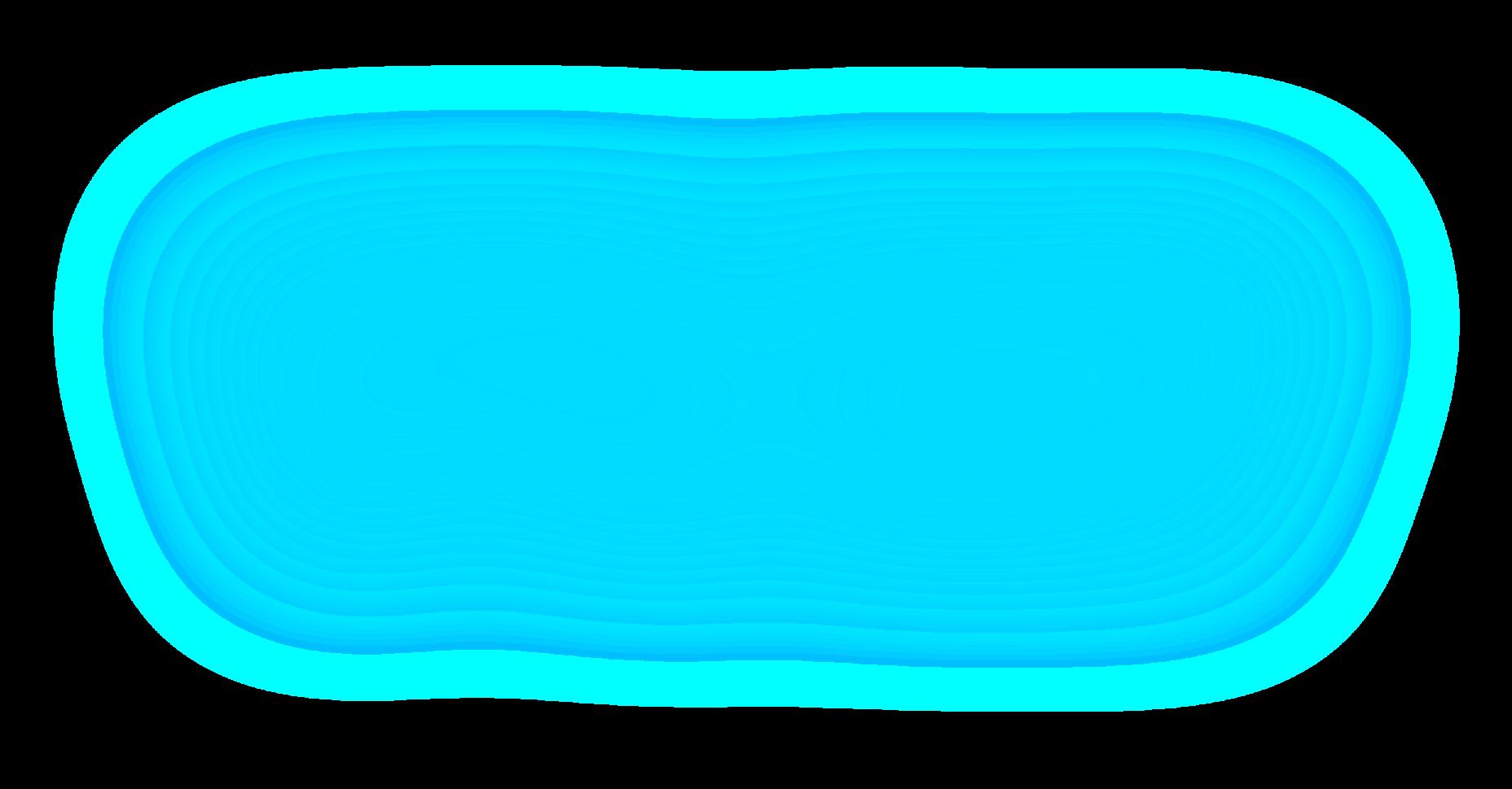
All books depict history, facts, theories, fiction or poetry. No book is coded with hidden messages beyond the words or patterns revealing marvels. But the Bible (Torah) was written by God, and is “coded.” The order of verses, use of certain phrases, apparent contradictions and other Biblical patterns are pur poseful clues to God’s wisdom.
This book unveils those patterns and shares the hidden messages.

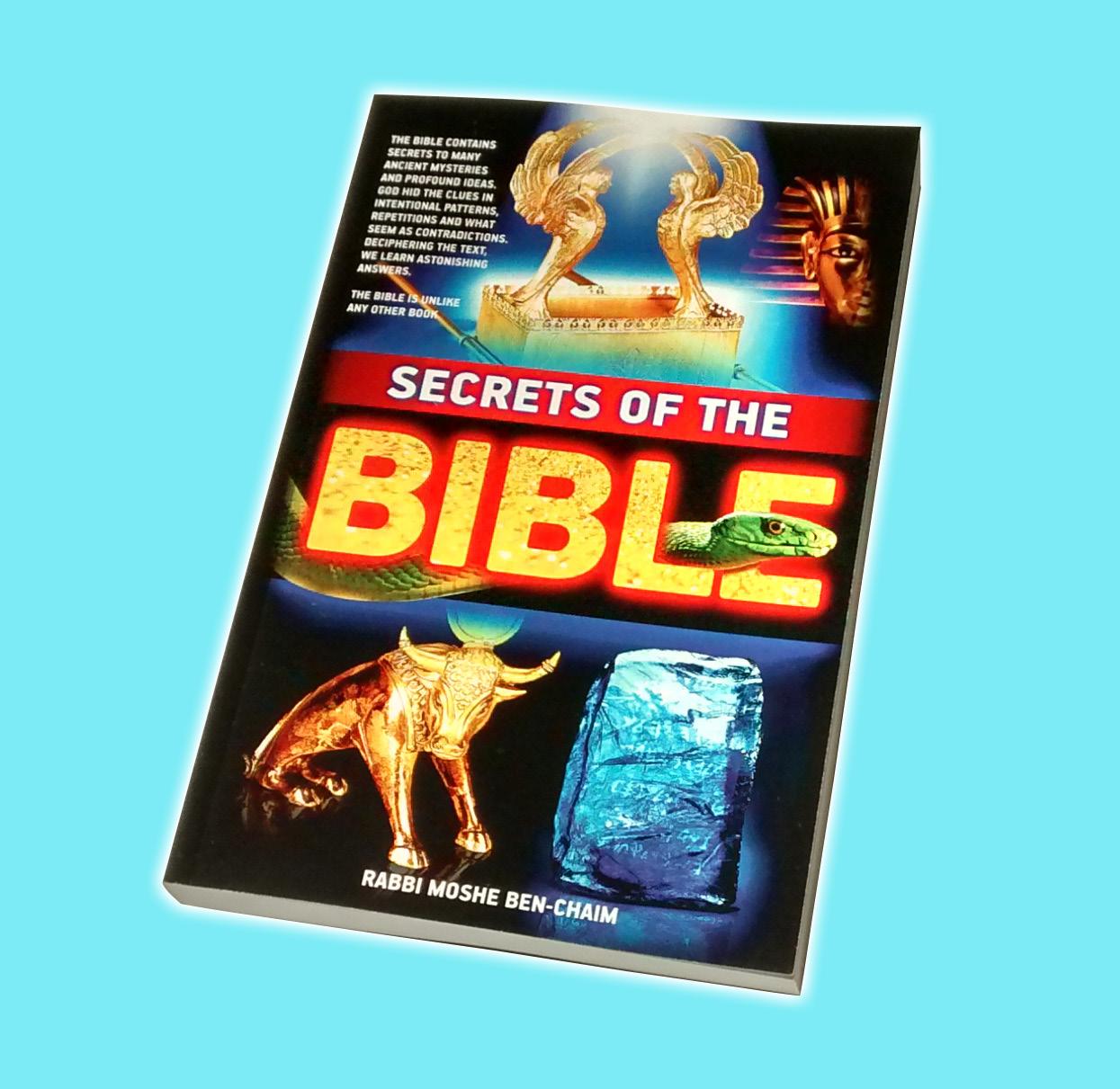

loves does He rebuke.” Whom does God love? These are the righteous that follow God. And when they make errors as all men do, God rebukes them with troubles to awaken them to their flaws, so they may further perfect themselves. But those whom God does not love, namely, people who do not follow God, God does not do the futile act of trying to correct them, which they would not follow. God gave Abraham 10 trials precisely to awaken him to greater perfection. The intelligent, righteous person welcomes these opportunities. They are not evil at all but a great benefit. God is good.
There is now one more crucial step. God is the cause of reality and there is no alternative reality. Our question whether God is good or evil is truly inapplicable. God determined what should be, and what should not be. As God defined what properly exists, our critique of God and His justice is foolish. There is no alternative: all that exists is proper. Rabbi Akiva embodied this acceptance and had no arguments, although he was tortured to death. We cannot suggest how God should have created reality. Instead, we should change our thinking to appreciate what God created is perfect, instead of trying to

question or change it. King Solomon said, “Keep your mouth from being rash, and let not your throat be quick to bring forth speech before God. For God is in heaven and you are on earth; therefore let your words be few” (Koheles 5:1). Here, the wisest man after Moses tells us that our complaints are foolish. It is God’s will alone that determined how reality should be. Just as a painting cannot complain to the artist that the art is “wrong,” we cannot tell God how reality should operate or what should exist.
“I form light and create darkness, I make peace and create evil. I, God, do all these things” (Isaiah 45:7). This verse teaches an equation: just as light and darkness are proper in God’s plan, goodness for the righteous and evil for sinners too are proper creations which man cannot suggest are improper. But God did not will man to experience evil: “From God’s mouth does not come evil or good. About what shall a living man complain? Each man [should complain] about his own sins!” (Lam. 3:38,39). Rashi comments: But about what should a living man complain? “A man for his sins!” Every man should bemoan his sins, because they are what bring the evil
upon him. (They did not emanate from the Almighty. Rabbi Yochonon said, “From the day that the Holy One, Blessed is He, said, ‘See, I have placed before you today the life and the good, death and evil…and choose life’ (Deut. 30:15) neither evil nor good has come from His will. Rather, the evil comes by itself to the one who commits evil, and the good to the one who does good.” Therefore, what should one bemoan? Why should a man be angry, if not about his sins?
Thus, when Isaiah said “I make peace and create evil,” he meant God punishes evildoers. But Lamentations teaches “From God’s mouth does not come evil or good.” Meaning, man brings evil upon himself, it is not God who does so without cause. Maimonides teaches human evils are self-inflicted (Guide, book III, chap. xi, xii).
Reality all comes from God. He made all with perfect reason and justice. All reality is good, since God is good, meaning, God acts only with perfect justice. Man’s ignorance prevents him from appreciating the good in everything. But the wisest men appreciated God’s wisdom. ■



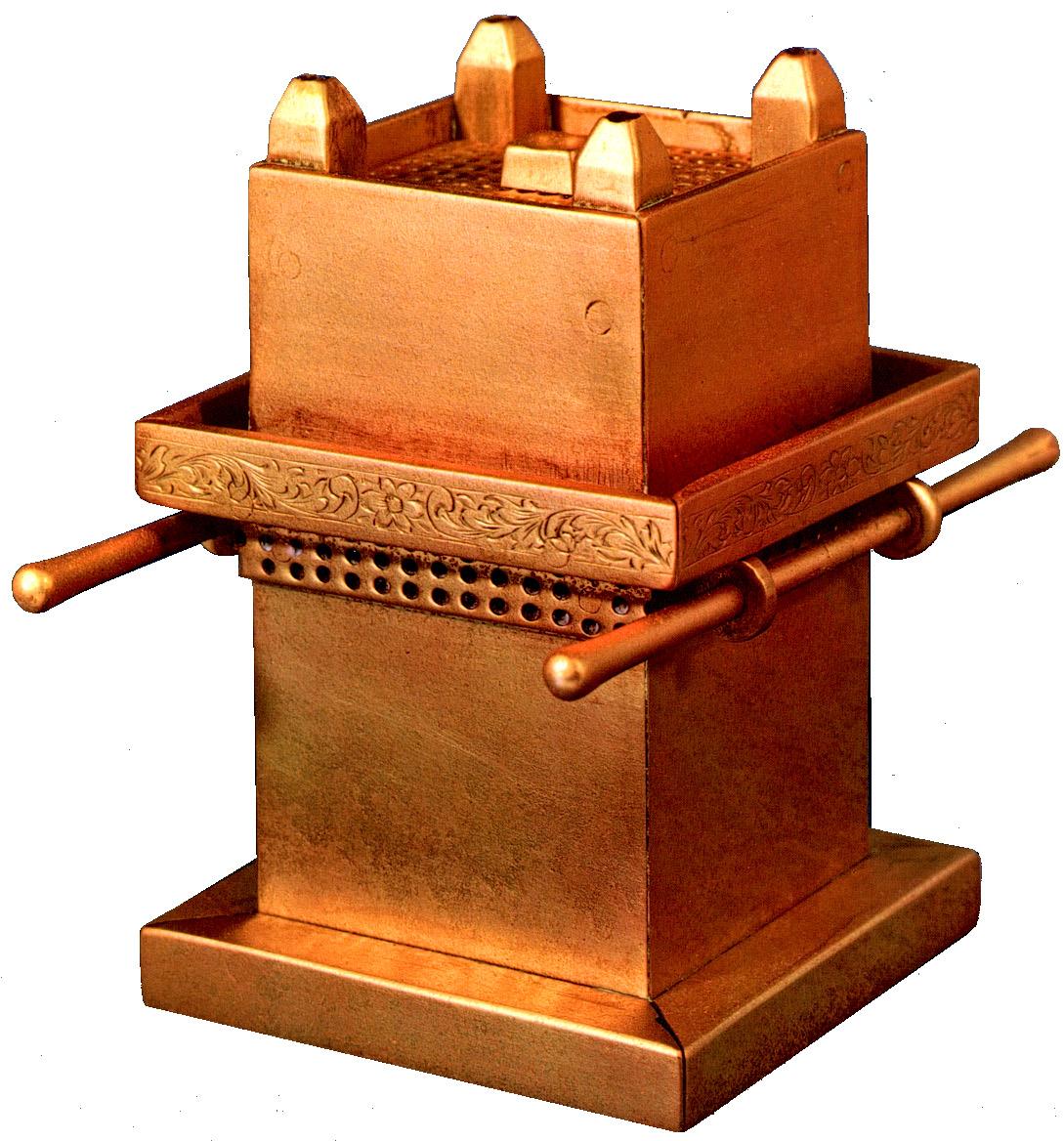


This week’s Parsha, Tzav, continues the description of the Temple Service. What is the relevance of the Korbanot (Sacrifices) to the existential condition of man? The prime motivator of human behavior is what is called the “pursuit of happiness”. Every human endeavor is geared toward that goal. For example, many people devote numerous years of steadfast e ort to attaining excellence in certain sports or other professional undertakings–only because they believe that when they have achieved their designated objective–it will make them happy.
These expectations are not always fulfilled. Many “successful” people are extremely unhappy. They might have rejoiced when they first passed the bar and became a lawyer or aced their medical exams and became a doctor, but those feelings do not last very long. It is thus quite clear that financial success–even of great dimensions–is not by itself enough to quell the profound yearning for enduring joy that man craves. Does Judaism have anything to o er on this subject?
At this time of year, the Book of VaYikra is read in Synagogue. The main subject in the opening portions is that of animal Sacrifices. This does not seem to speak to the religious needs of contemporary man nor fill him with spiritual enthusiasm. Two major concepts that permeate the Korbanot are Kapara (Atonement) and Hodaah (Gratitude).

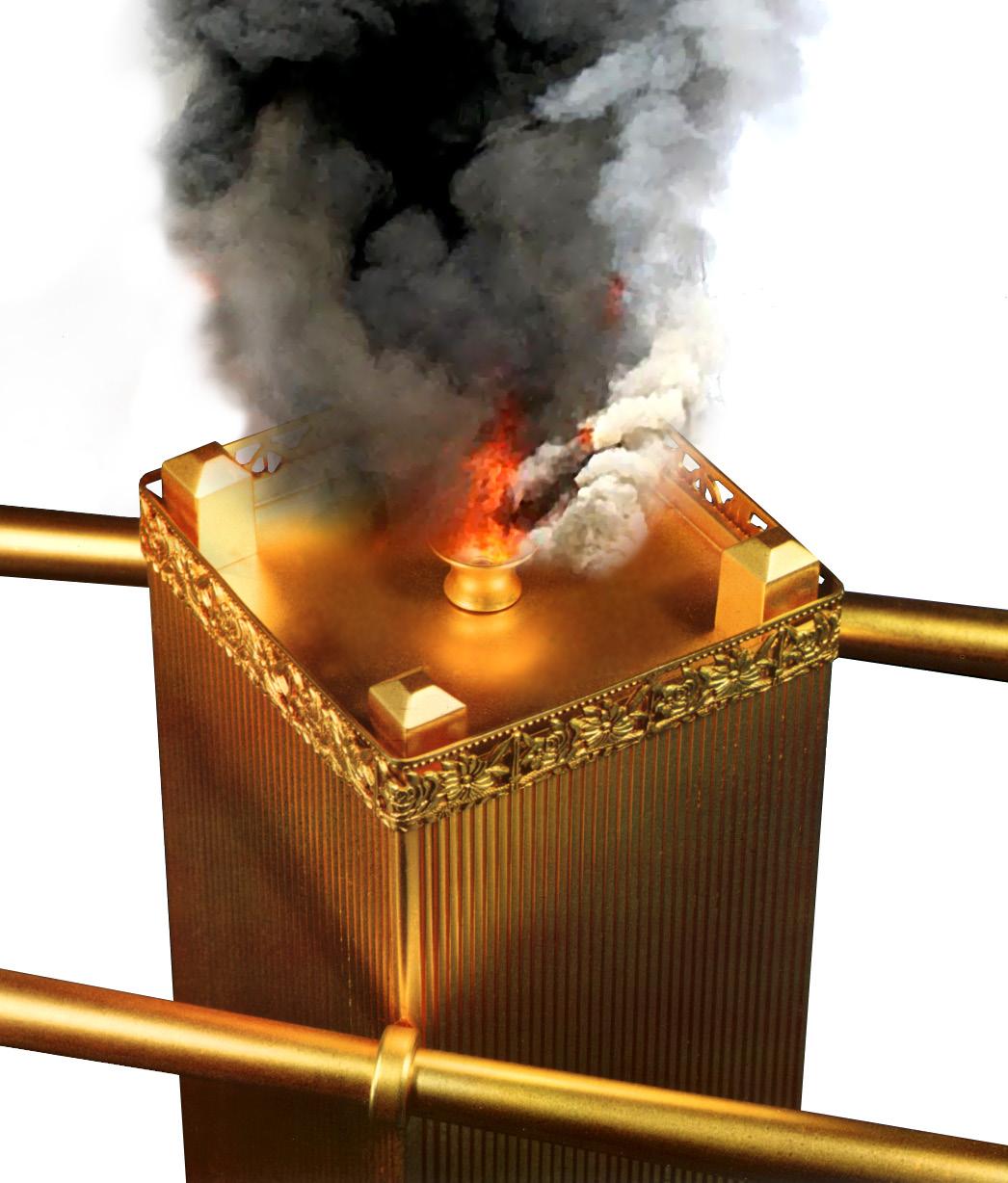

The Torah teaches that man must have a sense of gratitude for all that he has. That is because there is nothing that he truly owns–not even his very existence. To put it simply, no one has created his very own life.
The most fundamental principle of our lives is that we exist because a Being, outside of ourselves, decreed, in accordance with His Supreme Wisdom, that we should be created. Indeed, we have no idea what motivated Him to do this, as we cannot comprehend the “Mind” of G-d. Nevertheless, it is of the utmost importance that man be appreciative of the greatest gift–that of human existence–that one could ever contemplate.
If a person refuses to acknowledge Creation, he will find it impossible to proceed to his goal. He will then conduct his life following his base emotional drives, and what he imagines will bring him happiness. He is therefore guaranteed to experience many disappointments as his sense of what ought to be and what he thinks he is entitled to, is not borne out by reality.
The only way a person can find satisfaction and thus joy is by fulfilling his actual nature. And what exactly that is has been revealed by the Creator in the Book of Genesis which states, “And G-d Created man in His Image, in the Image of G-d Created He him; male and female Created He them. (Bereishit 1:27)”
By entering the Holy Temple and o ering an animal on Hashem's Altar, man is acknowledging that G-d is the Supreme Master of all that exists. He also comes face-to-face with the fact that he is unique and di erent from the beast that he sacrifices. He recognizes that the animal is a creature of instinctual constitution which lacks the ability to think, contemplate, and make intelligent decisions.
Only man has been granted the gift of a rational faculty which enables him to gain an understanding of the laws of nature and to utilize them in his service. Just consider the amazing progress that man has made in medicine, communication, travel, etc. The history of human progress testifies to the words of the Torah that man was created in “the Image of G-d.”
The ultimate purpose of the Temple Service is for man to renew his awareness that the Creator has endowed him with a special mechanism that allows him to think and obtain genuine wisdom and understanding. It is therefore a terrible sin to waste or corrupt
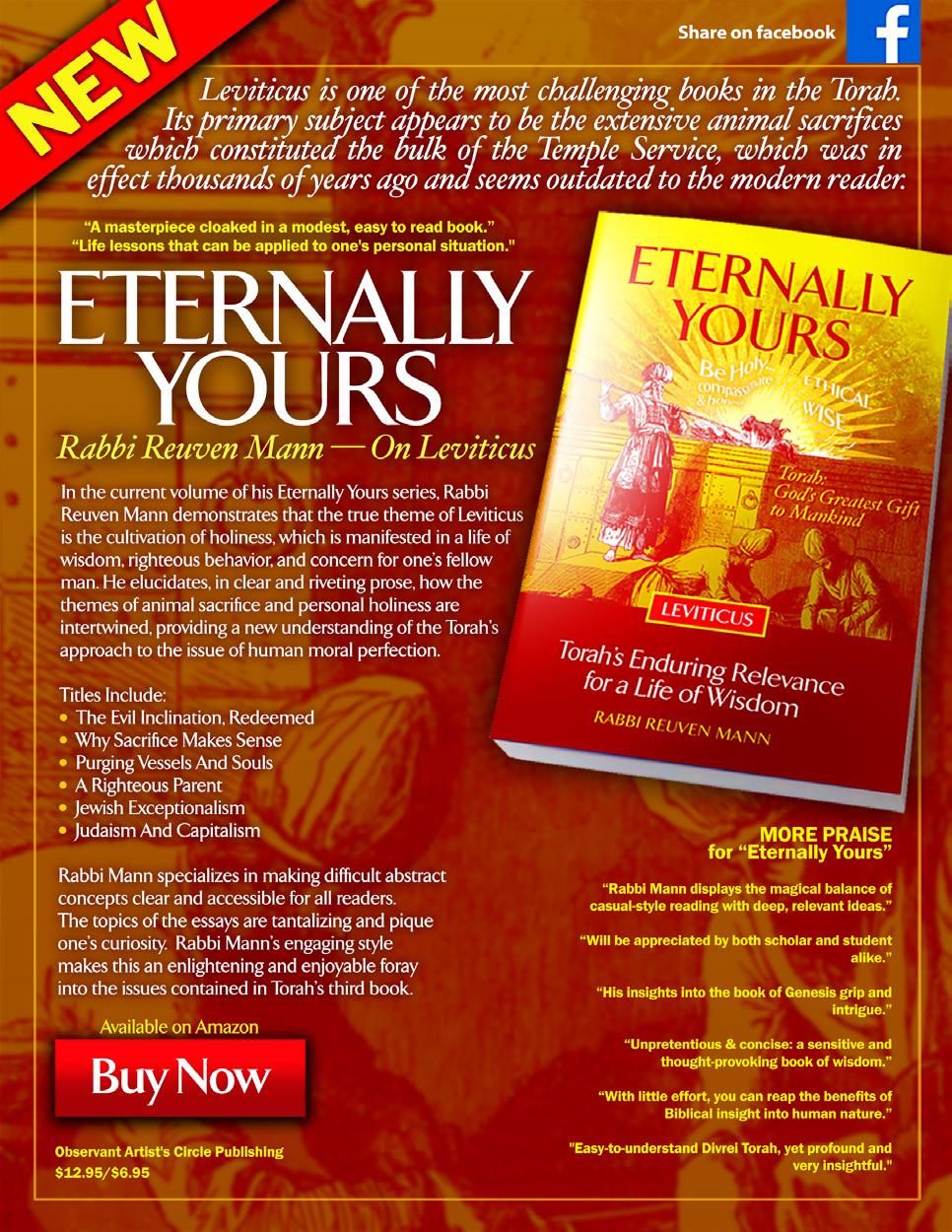
the great faculty we possess. To live a life based only on carnal pursuits is to negate the divine faculty which di erentiates us from animals and allows us to emulate the Ways of our Creator. The Beit HaMikdash (Holy Temple) testifies to the phenomenon of Creation and G-d’s ongoing role in maintaining the universe. Man comes there to express his gratitude for the great gift of the Divine soul, and also to achieve atonement for the sins he has committed against it. For every sin is a breach of man’s obligation to recognize his higher self and to live in a manner that imitates the Wise and Compassionate Ways of his Creator.
By living with wisdom and operating with justice and compassion, man is satisfying his nature as a rational being. This is thus the formula for happiness in this world and access to the one to come. May we merit to achieve it.
Shabbat Shalom. ■

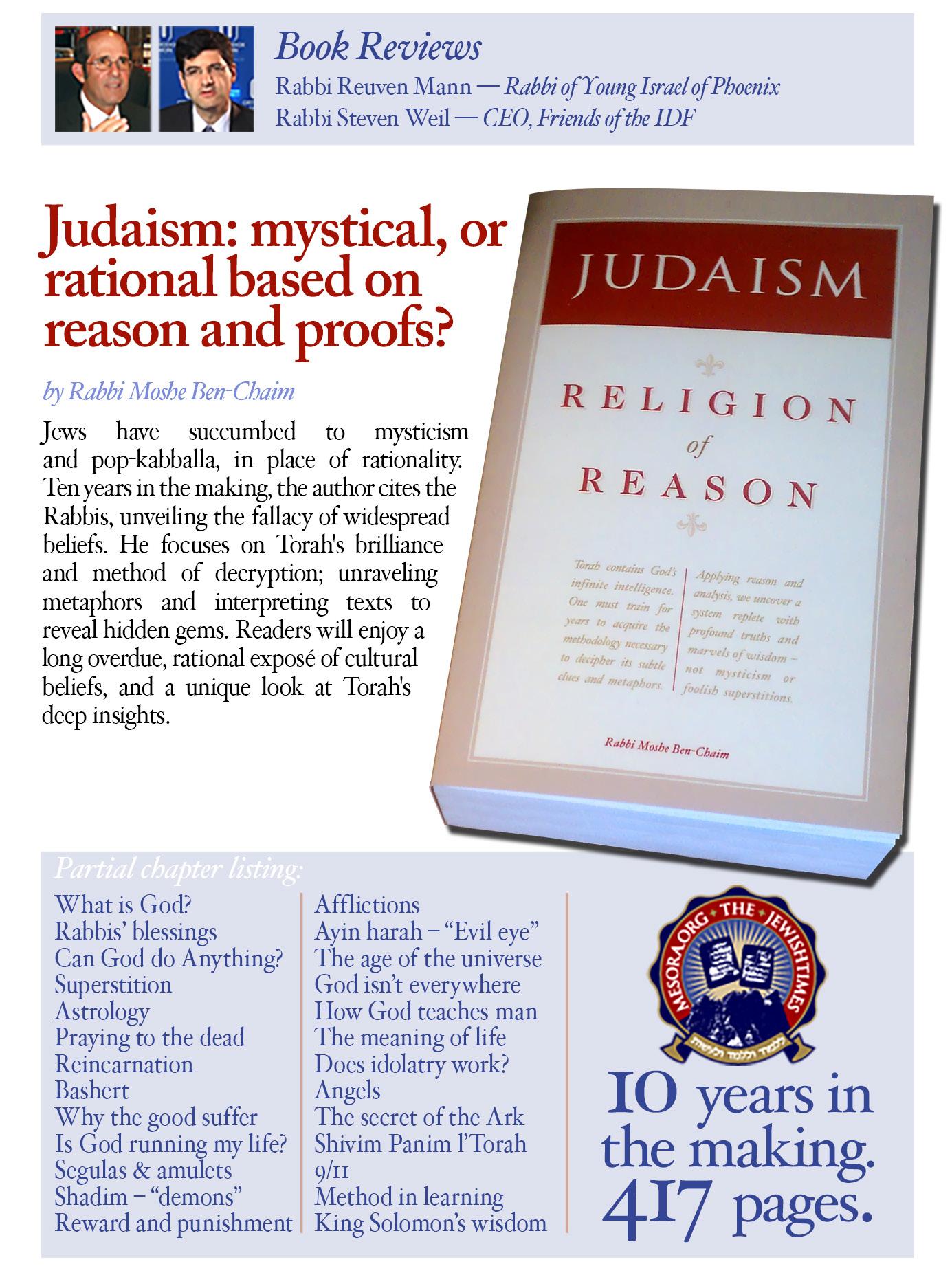


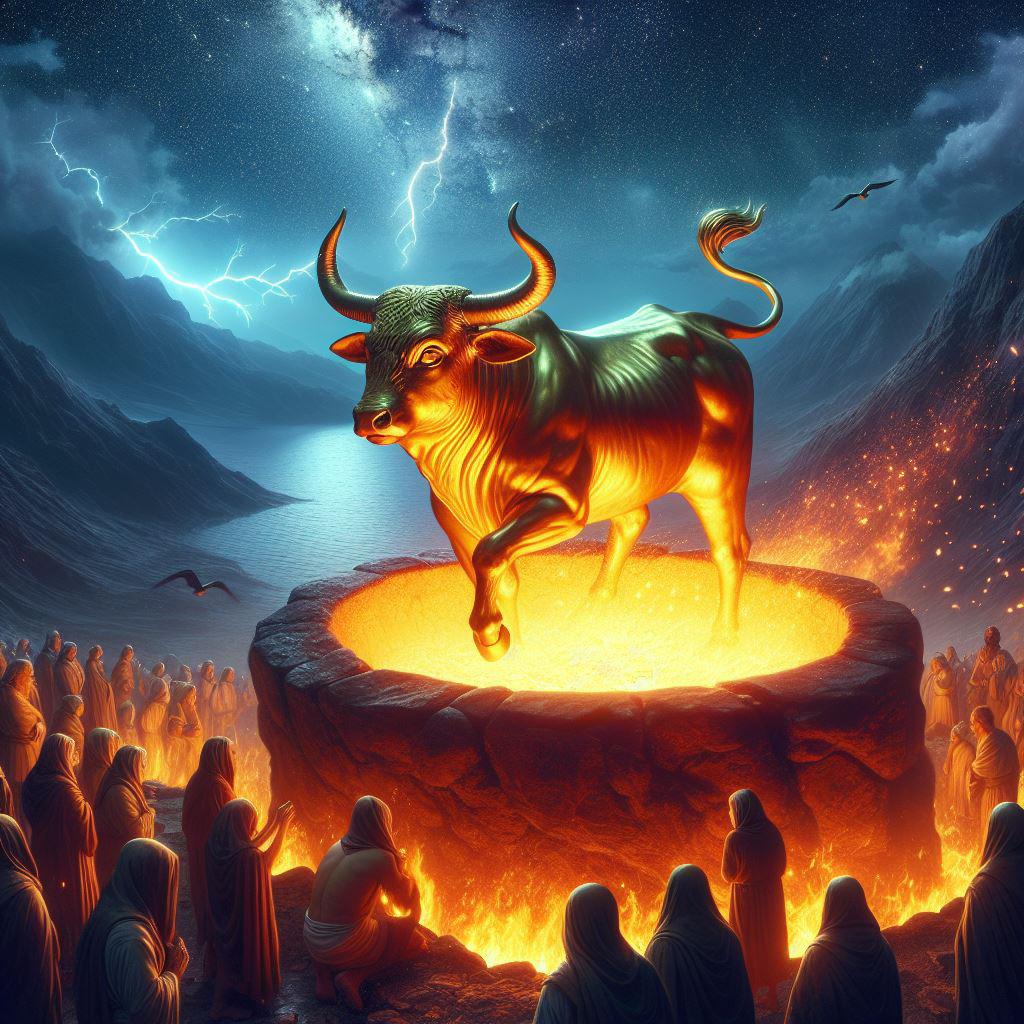
Moses told the Jews he would ascend Mount Sinai, receive the Torah and return in 40 days. However the people started counting prematurely, and when Moses had not yet arrived according to their incorrect account, they panicked. They sought from Aaron a replacement for Moses. Seeing how the masses already killed Hur for resisting them (Rashi), Aaron played along, attempting to retard the process of creating an idol, asking the women and children to part with their gold, which he felt they would be reluctant to give. During this hopeful delay, Aaron's plan was that Moses would finally arrive, eliminating the people’s fear and idolatrous actions. But Exodus 32:3,4 shows they were not reluctant:
And all the people took o the gold rings that were in their ears and brought them to Aaron. This he took from them and cast in a mold, and made it into a molten calf. And they exclaimed, “This is your god, O Israel, who brought you out of the land of Egypt!”
The verse says they made the calf, and no magical methods are necessary to explain this simple molding of melted gold. But the rabbis write in metaphor to teach deeper lessons. Rashi on Exod. 32:4:
As soon as he (Aaron) had thrown it (the gold) into the fire in a melting pot, the magicians amongst the mixed multitude who had come up with them from Egypt came and made it (the golden calf) by their “magic art.”
This is allegory. This first Rashi teaches us, had there not been superstitious Egyptians among the Jews to suggest mysterious powers about the Gold Calf—their magic—the people would not have succumbed to worshiping it. The mixed multitude of Egyptians who exited with the Jews were idolatrous. They convinced the Jews about the Gold Calf that “This is your God.” Of course magic is never been validated, but magicians refers to people with great influence. They prey on people's insecurities and convince them that certain activities will provide security in life. Today this is embodied in horoscopists, tarot card readers palm readers. The equivalent in Jewish circles would be wearing red bendels, putting notes in rabbis’ graves or feeling mezuzah has powers.
Fearing Moses was now dead, the Jews panicked that the “man” who took them out of Egypt (Exod. 32:1) was no

more. They were overly attached to this physical leader, the “man” Moses. The Egyptian multitude quickly catered to their fears by creating a physical calf, and building up a story of its powers. That is what is meant by “magic art,” psychologi cal persuasion. But the Gold Calf was a simple lifeless sculpture, explaining why Moses was later able to burn it and ground it to golddust (Exod. 32:20).
Rashi o ers a second explanation for the Jews’ acceptance of the Gold Calf (Exod. 32:4):
There are some who say that Micah the idolator (Judges 17) was there, who had been drawn forth from the foundations of a building in Egypt where he was nearly crushed. He had in his possession a “supernatu ral name” and a plate upon which Moses had written, “Rise ox, rise ox” in order to raise the co n of Joseph out of the Nile who is compared to an ox (Deut. 33:17), and he cast it the name and the plate into the melting pot and the calf came out (Midrash Tanchuma, Ki Tisa 19).
This too is non-literal allegory and must be deciphered. At this moment the Exodus had commenced. The Jews were leaving Egypt en-route to Mt. Sinai and then on to Israel. What was the need to bring Joseph's bones to Israel? Metaphorically speaking, why is God’s name and also the plate bearing “Rise up ox” (Jacob’s blessing of Joseph) necessary to elevate Joseph’s co n? What is this equation between raising Joseph’s bones and creating the Gold Calf, that both the name and the plate are used?
Sifsei Chachamim (Exod. 32:4) equates Joseph’s metaphor to an “ox,” to the Gold Calf which is baby ox. Just as Moses raised Joseph’s bones with the reference of God’s name and the plate bearing “Rise ox, rise ox,” Micha too raised the Gold Calf from the crucible with these two items. Simply put, we have two cases where an “ox” is raised with these 2 items.
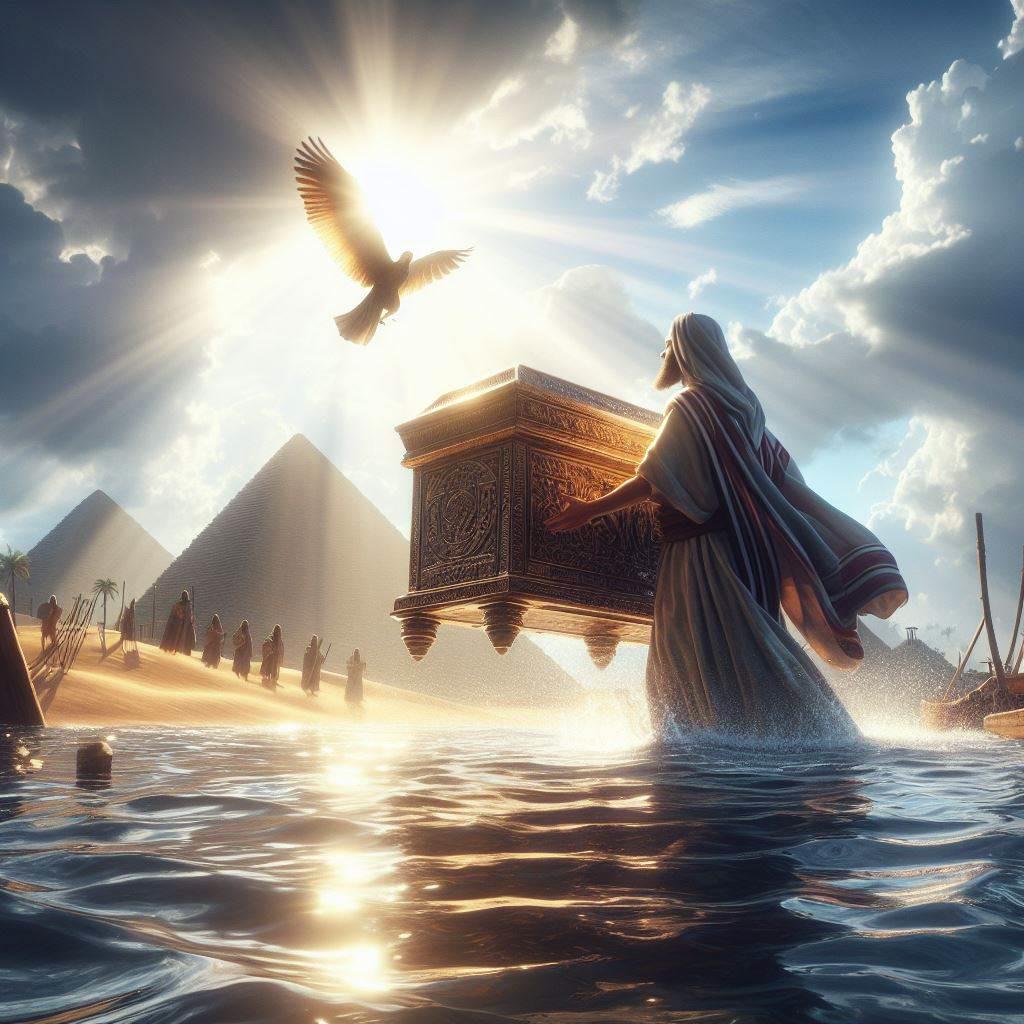
What the rabbis mean is that there is an equation between Moses taking Joseph's bones out of Egypt heading towards Israel, and Micha’s creation of the Gold Calf. (CONT.

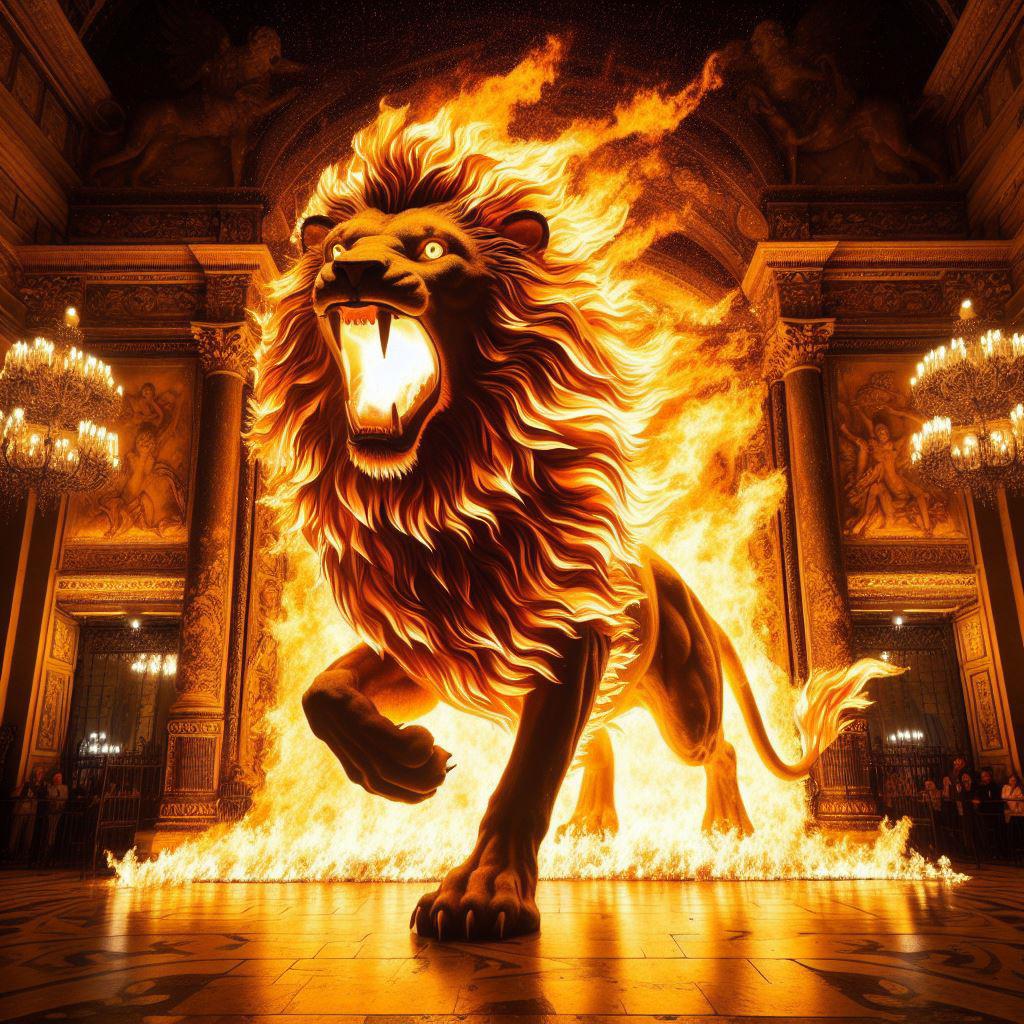

Moses wished to demonstrate that Jacob's fine upbringing of Joseph was for the ultimate goal of the Jews receiving Israel, the perfected state for Torah observance. Joseph was the most prominent figure in Egypt, but that 210 year duration of slavery was merely preparatory for the Jews to receive Torah and Israel. Moses taking Joseph's bones with him demonstrated that Joseph's ultimate role was that the Jews receive Torah and Israel: Egypt was not to be Joseph's final destination. However, a distorted personality can relate to a great leader like Joseph in an idolatrous manner, and relate to God too in idolatrous fashion. Therefore, the rabbis scripted this allegory to show that the same two indications of perfection—Joseph and God—in the hands of a Jew corrupted by Egyptian culture (Micha), would lead to an idolatrous personality, expressed in Micha’s creation of the Gold Calf. Man's misguided religious emotion (Micha) can lead him to the greatest of tragedies (Gold Calf), as we see in the Crusades, Jihads and other religious fanatics, whose belief in following what they thought is God’s will, fueled guilt-free slaughters of innocents. Talmud Yoma 69b o ers insight:
He delivered the evil inclination to them. A form of a fiery lion cub came forth from the chamber of the Holy of Holies. Zechariah the prophet said to the Jewish people, “This is the evil inclination for idol worship, as it is stated in the verse that refers to this event, ‘And he said: This is the evil one’” (Zechariah 5:8).
Rabbi Israel Chait asked what is the most significant part of this allegory. He said it was the location from where the instincts emerged: the Holy of Holies. He explained that the religious emotion is the greatest instinctual expression [1]. This is because when a person feels his actions are the fulfillment of God's will—religion—there is no guilt or restraint, and his emotional expression is unbridled and in full force. The religious emotion sanctioned by one’s imagination of “doing God's work” and has no restraint. The Crusades, Hitler and others were misguided in their belief that they were divinely inspired. Unlike all other instinctual drives where a person might feel guilt and restraint, the religious instinct is unbridled, and can perpetrate the most heinous crimes. This was Micha.
Unlike Moses who related to man (Joseph) as merely one who leads us to God, and unlike Moses’ acceptance of an unknowable God (Moses had only God’s “name”), Micha related to man (Moses) as a physical intermediary, and he could not relate to a metaphysical God. Micha succumbed to fears when Moses was late, and created a Gold Calf to replace Moses and to reject our true non-physical God.
Sifsei Chachamim (Exod. 32:4) cite an allegory of the rabbis: Pharaoh, upon seeing the Jews did not meet their brick quota, had the Egyptian taskmasters use children in place of missing bricks. Moses asked God why He was allowing Egypt to kill the children. God responded that none of the children would escape Egypt’s corrupt influence; their lives would be worthless. Moses removed one child being crushed in the walls and this was Micha who followed idolatry.
[1] The lion is the strongest of the animals, indicating that the instincts are very strong. And fire is the strongest of the elements, which embellishes the point of how strong the instincts are. ■
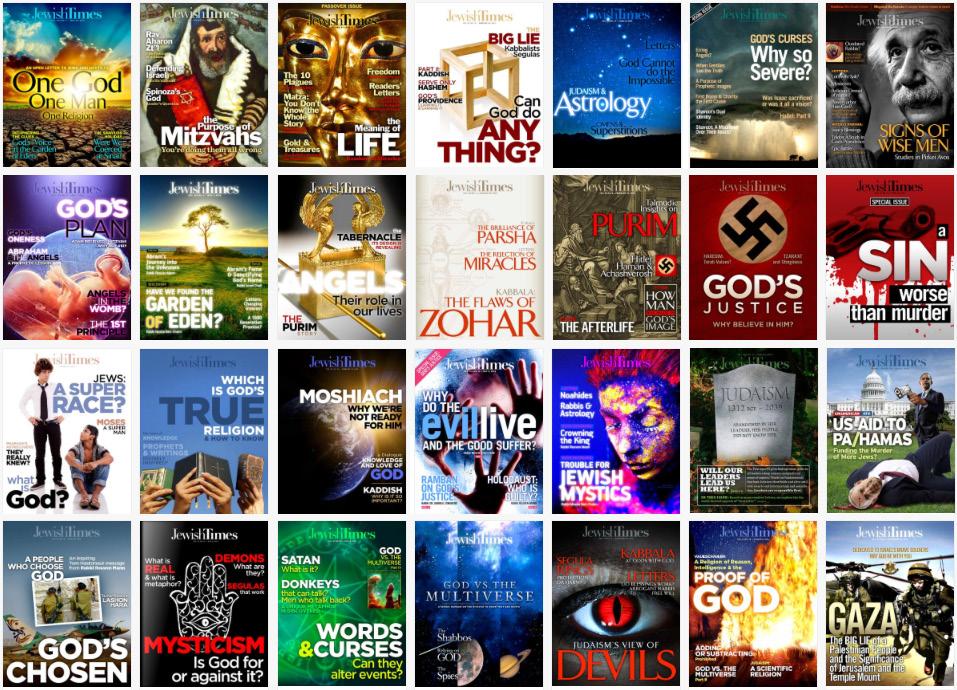

Leviticus 1:1 says God “called” to Moses, and then He “spoke” to him. Why are both needed? Just speak to Moses!
Rashi comments that one might think God called to Moses, not only regarding God’s “spoken”communication, but that He also called him regarding the silent gaps in their conversation—between each Torah section when God paused—which allowed Moses time to ponder. Meaning, God called to Moses as He was about to speak new ideas, and then when God finished speaking a Torah section, He again “called” to Moses to direct his attention to the silent gaps.
“Calling” someone before “speaking” to him intends to first draw the listener’s attention as an act of preparedness for new ideas. As God’s words are of optimum importance, Moses required focus. But why would God call Moses’ attention when He stopped speaking, and there was silence? This would indicate that—although not of equal status—Moses gains wisdom when God speaks, and ialso when God is silent.
This teaches a vital principle: gaining wisdom is not only when the student listens to a teacher, but also when the teacher is silent, and the student thinks into all he has been taught to understand every point. This requires silence from the teacher, and reasoning by the student. But there’s another equally vital principle here…
God called Moses’ attention when He concluded a Torah section, as that very conclusion closed-o the ideas that belong in that section. Such limitation is quite informative. For example, by listing a category of murder, theft and rape, one categorizes that as “interpersonal damages.” This categorization helps to better understand the category and its members (components). Grasping the common denominator of all group’s members enlightens a person to the category’s theme. Similarly, through Moses’ receipt of prohibitions of idolatry, polytheism and star worship, Moses thereby categorizes these laws as teaching that God is one. Thus, a pause in God’s words which creates a limited category, is also essential to our acquisition of knowledge.
Rabbi Israel Chait cited Maimonides’ formulation of how a master acquires a servant. This can be done by the servant tying the master’s shoe, or lifting up the master. The servant performs some subservient action. But then Maimonides adds, “And similarly, if the master lifts the servant.” The obvious question is that this does not embody any subservience by the servant. Rabbi Chait says Reb Chaim Soloveitchik said there’s no problem. The category that renders the servant acquired by the master is not servitude, but conquest. Maimonides’ inclusion of the master lifting the servant broadens the category of methods of acquisition, forcing us way from the theme of servitude, to conquest. Proper classifying members of a category provide greater knowledge.
However, Rashi concludes that God called Moses’ attention only for His speech, and not for the gaps. This means that of greater instruction are God’s precise words, than human reasoning. However, this does not diminish the importance of the gaps in God’s communication, for God willed these gaps so man engages his mind. ■

